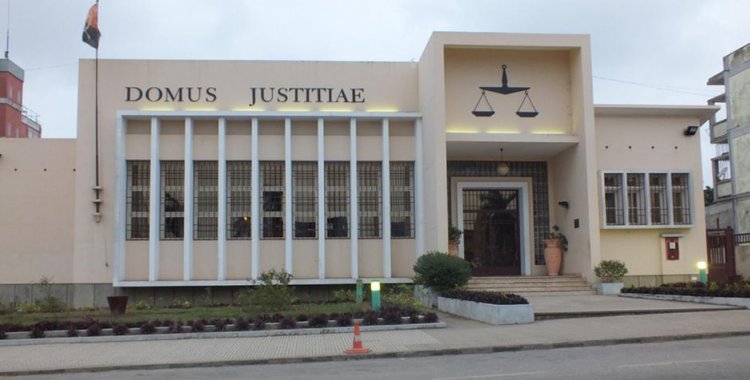The information was presented this Wednesday to the Lusa agency by the defense of Maurício Gimbi, André Bônzela and João Mampuela, the president, vice-president and the director of the office of the president, respectively, of the political organization Union of Cabindans for Independence (UCI), arrested last June 28 and 30 in Cabinda, accused of the crimes of rebellion, outrage to the State and criminal association.
Arão Tempo mentioned that the shift judge decided to keep Maurício Gimbi and João Mampuela in pre-trial detention and to grant João Bônzela provisional release, under the term of identity and residence and through the payment of a bond of 300,000 kwanzas.
"But the latter is unable to pay because he has no conditions," said Arão Tempo, pointing out that the economic situation in Cabinda, as in the whole country, is difficult.
"I know that all of Angola is in a difficult economic situation, but Cabinda is experiencing a deeper crisis that cannot be compared with other provinces in Angola, because in Cabinda, all the companies are bankrupt, 45 years and the government has not created social and economic conditions, we depend on the two Congos (neighboring Democratic Republic of Congo and Republic of Congo), and there are massive layoffs of company workers," he stressed.
In this sense, the defense added, "the three remain in detention".
Asked what the court's basis for this decision was, Arão Tempo said the justification was that the two have already passed through the Criminal Investigation Service, "under the same alleged crimes".
"And the other does not clearly justify what made this one leave, the plea says that they have already passed and the other does not and in that sense had to be granted this provisional release", he stressed.
The accused accuses justice of being a hostage of the political system, especially when it comes to situations like this case.
"This means that behind them are the competent authorities of the MPLA's political system, which at this very moment maintains the power of justice and it is they who decide," he accused.
Arão Tempo said that he continues to follow the process, pointing out that even if he appeals this decision will be "to simply burn time and not have any legal effect".
"This is how we are following the process, seeing the preventive period, if they can leave before or must be submitted to justice, we will follow the process closely in this sense," he said.
The defense emphasizes that the law provides for extensions to pre-trial detention, and given the experience that it has "there are moments that they come up to six months and are not judged.
"In an investigation or in normal proceedings, when there is nothing else to investigate the process is accused, but in these crimes they burn time, that is, it is a punishment that they give to the people, they stay there, at the mercy of the will of the people, of the decision, and when they understand that they should exhaust the deadline they refer to the court, but deep down when you see the process itself you don't see the basis of the extension of the deadlines", he pointed out.
The three activists were arrested the day before they were put on the streets, whose authorship was attributed to the movement created a year ago, with the words: "Down with the weapons, down with the war, Cabinda is not Angola, live the dialogue".
The differences in Cabinda province, an enclave in the north of Angola, is led by the so-called independence supporters of the Cabinda State Liberation Front - Armed Forces of Cabinda (FLEC-FAC), an organization that has been fighting for about 50 years for the independence of that territory, from which much of the country's oil production is extracted.
At the basis of the challenge is what they call the "Angolan military invasion, after the signing, in 1975, of the Alvor Agreement," a document with which they consider that "the Portuguese political authorities, without any consultation with the Cabindans, handed them over to the Angolans.
FLEC-FAC recalls that on 1 February 1885, the Treaty of Simulambuco was signed, making that enclave a "Portuguese protectorate," the basis of the fight for independence of the territory, from which more than half of Angola's oil is extracted.







